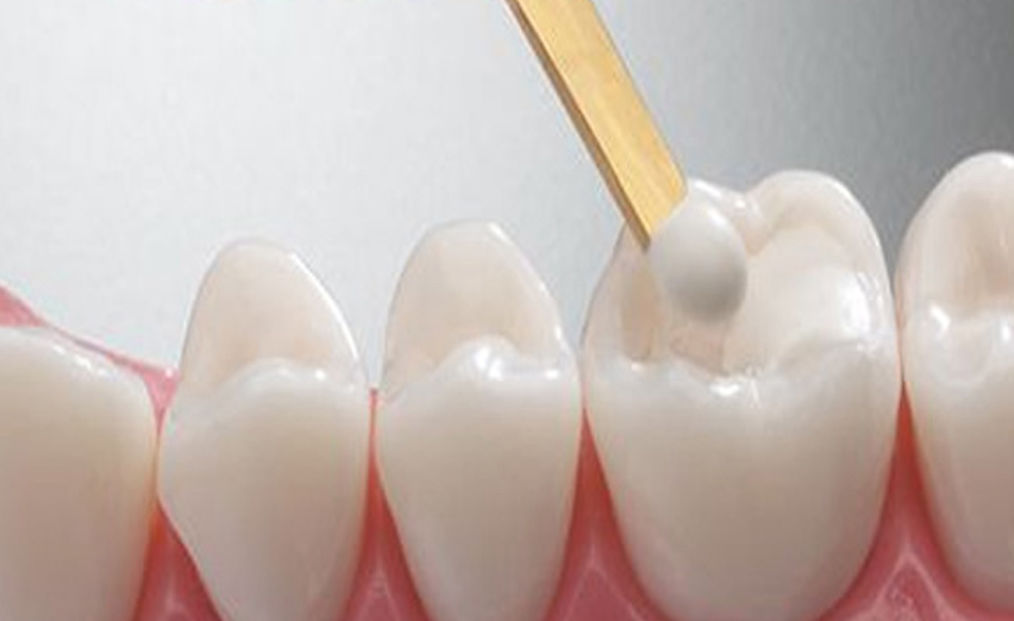POST OP INSTRUCTIONS
GENERAL ADVICE
Scaling and Root Planing therapy involves removing bacterial plaque and tartar from the root surface below the gum line. This reduces inflammation/infection and allows re-attachment of the gums to the root surface. The depth of the periodontal pockets is reduced thus allowing more efficient flossing and brushing.
For the First 24 Hours:
- Do not eat or drink hot foods until the effect of anesthetic wears off.
- No vigorous physical exercise.
- Do not use a straw or sucking motions.
- Do not smoke or consume alcoholic beverages for at least 48 hours.
- Do not eat food that is extreme in temperature or spicy.
Things to Do:
- For any discomfort you can take ibuprofen (Advil) or acetaminophen (Tylenol).
- Consume a soft diet for a day or two and chew on of opposite side of the treated area.
- Rinse with a warm salt water rinse, one teaspoon in an 8 oz. glass of water, three times a day.
- Gently brush and floss the treated area for a few days. Then resume normal brushing in a week or until the soreness is gone.
- Rinse with chlorhexidine gluconate (Peridex) if prescribed, for at least 30 seconds twice daily.
As the gums heal they will appear to be pink, less swollen, and will bleed less when you floss.
The following will help you to use and properly care for your new denture.
- It is normal to experience some discomfort, sore spots and speech problems while getting used to your new dentures. Your dentures will need a few adjustments until you are comfortable. To help with speech, read aloud for a few minutes every day. Your mouth will adjust, and your speech will improve.
- Your bite will need to be adjusted as your dentures settle.
- It is important to clean your denture with a denture brush and a mild tooth paste. Soaking your denture once a week in denture cleaner (eg; Polident) will keep them clean.
- You should leave your dentures out for at least six hours to allow your gums to rest. Food particles trapped under the denture cause inflammation and sore spots. Brush the roof of your mouth as well as your gums and tongue. This will help keep your mouth healthy.
- For partial dentures with metal clasps special care should be taken while inserting and removing them. Keep your partials and remaining natural teeth absolutely clean to prevent gum disease and tooth decay.
- You should return to have your dentures and mouth check at least once a year. As changes in the mouth occur with further bone loss and wear on the teeth. These changes will make the denture not fit right thus causing trauma to your gums and bone leading to continuing damage.
With proper care we expect you to have years of satisfied use of your dentures. However overtime, there are changes in your jawbone and gums. When this occurs, your dentures/partials will feel loose and may require relining. Wearing ill-fitting dentures/partials for too long without refitting can cause severe bone loss and very serious oral disease. Please call our office if these symptoms occur.
- For an hour after surgery, you should place pressure on the gauze pad covering the extraction site. If bleeding continues, apply new gauze and pressure for and additional 45 minutes.
- After surgery, place a cold compress on your face near the extraction site for 20 minutes. Remove for 10 minutes. Repeat.
- Do not eat or drink hot foods and beverages after surgery.
- Do not rinse your mouth.
- Do not use a straw.
- Do not spit.
- Do not drink carbonated beverages.
- Do not brush your teeth on the day of the surgery. Then resume normal home care, gently brushing and flossing.
- Some bruising, swelling, and pain are normal – particularly if you have had a wisdom tooth extraction. Take your prescribed medication and use a cold compress on your face.
- Plan to eat soft foods, such as soups, milk shakes, fruit juice, and yogurt, for 2-3 days.
- Do not bite your lips, cheeks, or scrape your gums. Children should be watched carefully to make sure they don’t do this. It will damage soft tissues and result in pain.
- Do not eat or drink hot liquids or foods until the effects of anesthesia have worn off. This will prevent injury to your mouth.
- Some discomfort, swelling, and bleeding is normal following gum surgery. A cold compress should be placed on your face near the surgical site for 20 minutes at a time, with 10 minutes off, the day of your surgery. This will reduce pain, swelling, and bleeding.
- Take your prescribed medications as instructed.
- Do not do vigorous exercise today and while sleeping keep your head elevated.
- Eat on the opposite side for a few days. Consume soft nutritious diet and drink plenty of fluids. Do not consume hard or crunchy diet as it may damage the surgical area.
- Do not raise your lips and probe the area with your fingers.
- Do not brush your teeth near the sutures. However, you should brush and floss the rest of your teeth as you normally would.
- You may experience some sensitivity and looseness of teeth. Sensitivity will improve over time with excellent home care and use of tooth pastes like Sensodyne.
- Do not spit or use a straw for 24 hours.
- Do not smoke or consume alcohol for at least 48 hours. This will delay healing and may cause pain.
- After 24 hours, gently rinse your mouth with warm salt water (1/4 teaspoon in 8 oz of water) two to three times a day. Also use chlorhexidine mouth wash as twice a day.
- Slight bleeding from the treated area is expected for a few hours. In case the bleeding continues or increases, take a moist tea bag and place it on the affected area for 20 minutes.
- A periodontal dressing may be placed over the treated area. It should remain in place for one week. In case it comes off, it is not an emergency. However, call our office to let us know.
- Should the swelling, pain or fever gets worse, please call us immediately.
- You should keep your appointment for follow-up with your dentist. At this appointment, the periodontal dressing and any sutures will be removed and area examined. In case the sutures come loose within 3 days, please let us know.
- It is crucial to practice immaculate home care around the treated area and rest of your mouth to aid in proper healing. One week after the treatment, brush the treated area gently with a soft brush being careful along the gum line. Flossing and use of proximal brush can be initiated in two to three weeks.
- For an hour following your visit, do not chew. Wait until numbness subsides before eating.
- Do not bite your lips, cheeks, or scrape your gums. Children should be watched carefully to make sure they don’t do this. It will damage soft tissues and result in pain.
- Sensitivity to cold and heat, as well as any soreness, should go away in a few days.
You have finished a very important phase of your implant treatment, and now it is time to begin the healing process. It is important to understand that some discomfort, swelling, and bruising is normal. Every patient is different and there is no way of predicting if you will experience any of these symptoms. The medications that have been prescribed to you will help keep you comfortable for the next few days. Refrain from eating for at least two hours and until the anesthesia has worn off.
Things to Avoid for the first 24 hours:
- Vigorous physical exercise, but you may return to work.
- Drinking through a straw or sucking motions.
- Do not smoke. It’s better to refrain for 48 hours.
- Drinking alcoholic beverages will retard the healing process.
- Food that is extreme in temperature or spicy.
- Avoid using any strong mouthwashes that contain alcohol.
Things to Do:
- You may take a non-aspirin analgesic to relieve any tenderness or discomfort, such as ibuprofen (Advil) or acetaminophen (Tylenol).
- Eat a well balanced soft diet for today.
- You may chew on the opposite side of the treated area until it is comfortable to chew normally.
- Rinse with a warm salt water rinse, a 1 teaspoon in an 8 oz. glass of water, 3 times a day.
- Brush your teeth very lightly in the treated area the first night. Then begin flossing lightly as well the next day, gradually increasing to normal force by the week’s end.
- After flossing and brushing, rinse with chlorhexidine gluconate (Peridex), if it was prescribed, for at least 60 seconds. Do this at least twice daily.
Several days after treatment your gums should begin to appear pinker, less swollen, and will bleed less when you floss. These are signs of healing and improving periodontal health. If you have any questions or problems, please call our office
Sensitivity should subside after a few days.
- Take your prescribed medication as directed.
- Because a temporary filling is on the tooth, do not bite hard for one hour after your appointment. Once the permanent filling is in place, chew carefully on the opposite side of your mouth.
- Do not bite your lips, cheeks, or scrape your gums. Children should be watched carefully to make sure they don’t do this. It will damage soft tissues and result in pain.
- Sensitivity to cold and heat, as well as any soreness, should go away in a few days.
- Brush and floss gently.
- Pain, swelling, and bleeding is normal following oral surgery. A cold compress should be placed on your face near the surgical site for 10 minutes at a time, with 5 minutes off, the day of your surgery. This will reduce pain, swelling, and bleeding.
- Take your prescribed medications as instructed.
- You should keep your appointment for follow-up with your dentist.
- Do not raise your lips and probe the area with your fingers.
- Do not brush your teeth near the sutures. However, you should brush and floss the rest of your teeth as you normally would.
- Do not spit or use a straw the day of your procedure. Avoid smoking for a few days.
While wearing a temporary crown or bridge:
- You will wear temporary restorations until your permanent restoration is made (unless we have made a CEREC one-visit restoration for you).
- It is normal for the gum around the tooth to be tender for a day or two. If the tenderness persists any longer than two days, please call our office immediately so we can check the temporary restoration and make any needed corrections.
- If the temporary restoration comes loose or breaks, please call us. If the temporary restoration is off for even a short time, the tooth can shift position and cause the final restoration to not fit well.
- Please avoid eating with the temporary restoration as much as possible.
- Carefully clean around the restoration with a toothbrush and floss every day. When you do floss, pull the floss carefully out the side to avoid pulling the restoration off. In certain cases, we may advise you not to floss the area until your final restoration is delivered.
- Avoid sticky foods and chewing gum on the temporary restoration to avoid pulling it off.
- Slight discomfort, sensitivity and tenderness are possible after a tooth has had dental treatment, but if any of these persist for more than a day or two, please call our office.
After the permanent restoration has been delivered:
- Chewing: Do not chew hard foods on the restorations for 24 hour from the time they were cemented. The cement must mature for about 24 hours to have optimum strength.
- Sensitivity: Mild sensitivity to hot or cold foods is common. It should disappear gradually over a few weeks. Infrequently, sensitivity lasts longer than six weeks. Please tell us if this occurs.
- Aggressive chewing: Do not chew ice or other hard objects. Avoid chewing very sticky foods such as “hard tack” candies because they can damage or loosen the restoration.
Capitalize on low hanging fruit to identify a ballpark value added activity to beta test. Override the digital divide with additional clickthroughs from DevOps.
Free call 24/7 Copyright 2020 Dentosense Dental Clinic. All rights reserved. Website by Web Solutions Kenya.
Contact us now
EMERGENCY CONTACT
0721393939



